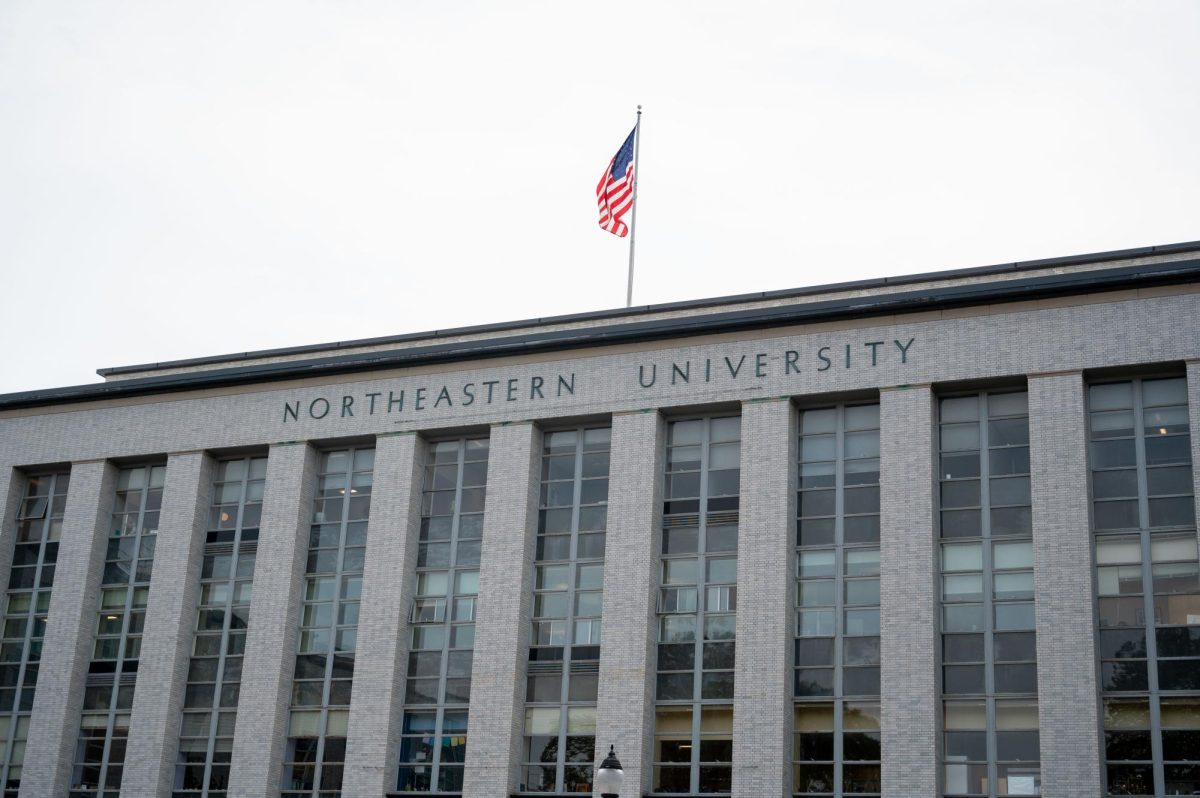By Esther Chou
In light of World AIDS Day 2003, Northeastern University hosted a panel discussion featuring a forum involving news and media coverage of the HIV/AIDS epidemic in the United States. The panel was a joint effort brought together by Northeastern University’s Bisexual, Lesbian, Gay, Straight, Transgender, Queer and Questioning Alliance (NUBILAGA) and the AIDS Action Committee of Massachusetts.
The forum was hosted by Jeanne Blake, a journalist who covered the early years of the AIDS epidemic as a medical reporter for Boston’s NBC-TV. The forum panelists included Fred Kuhr, editor of In News Weekly, (New England’s Gay, Lesbian and Bisexual Newspaper) Rich Nangle from the Worcester Telegram ‘ Gazette, as well as Stephen Smith, a reporter from the Boston Globe.
The discussion took place in the Raytheon Amphitheater where a crowd of approximately 20 students and members of the community addressed the sensitive issue of AIDS in America.
Some panelists, such as Kuhr, sought to answer the questions of how, why and when the news coverage of the AIDS epidemic shifted to the global arena. For example, in the small sub-Saharan country of Botswana infection rates have been as high as 40 percent in the population.
“AIDS in Africa is safe to talk about because it’s over there. For that reason, domestic AIDS is forgotten,” Kuhr said.
Others, such as Smith, had a different perspective.
“The story of AIDS ceased from the perspective of the media because the dynamic of the story has changed,” Smith said.
Smith focused on the issues surrounding how AIDS in America has progressed since its outbreak in the late ’70s.
“What has happened to AIDS is that the development is less dramatic. People with AIDS are living longer and that’s a great story,” Smith said.
Other panelists shared their view on society and readership of today.
“The reality is that [AIDS] is still a very newsworthy subject. The same number of infections per year is compelling and unprecedented,” Nangle said. “That’s worth writing about, but the nature of the business is that readers would rather read about shootings and Michael Jackson.”
Members of the audience voiced their opinions on the many issues surrounding the forum. Larry Kessler, founding director of the AIDS Action Committee was among the group of advocates and activists in attendance.
Kessler spoke of the global issue of AIDS and about the human responsibility involved in the international crisis, regardless of whether it is abroad or domestic.
“Numbers in Africa will soon be dwarfed by the numbers [of infections] in India and Asia, as well as the Caribbean, where numbers are comparatively bigger,” Kessler said. “This is a dramatic international story.”
The global HIV/AIDS epidemic killed more than 3 million people last year. It is estimated that some 5 million people were infected with HIV in 2003, bringing the human toll to 40 million people world wide living with HIV/AIDS, in a report issued by the United Nations. The HIV and AIDS epidemic is a human story; the seriousness of the issue was reflected at the forum last week, especially when Blake, an About Health TV journalist, told the audience that the infection rate in young gay men was still on the rise, despite research advances and popularity of AIDS drugs and education.
Blake asked students in the audience about their thoughts on safe sex, education and the need to tell the story of AIDS.
“I challenge those of you who want stories to be told to find something so compelling that it needs to be covered,” Blake said. “A really powerful human interest story will get in the news.”
As the forum came to a close, Kessler and others from the AIDS Action Committee honored Blake with an award to acknowledge her contribution to the medical community. Kessler also acknowledged her role as a journalist and her complete coverage of the AIDS epidemic that helped to stop the spread of AIDS in the ’80s.









